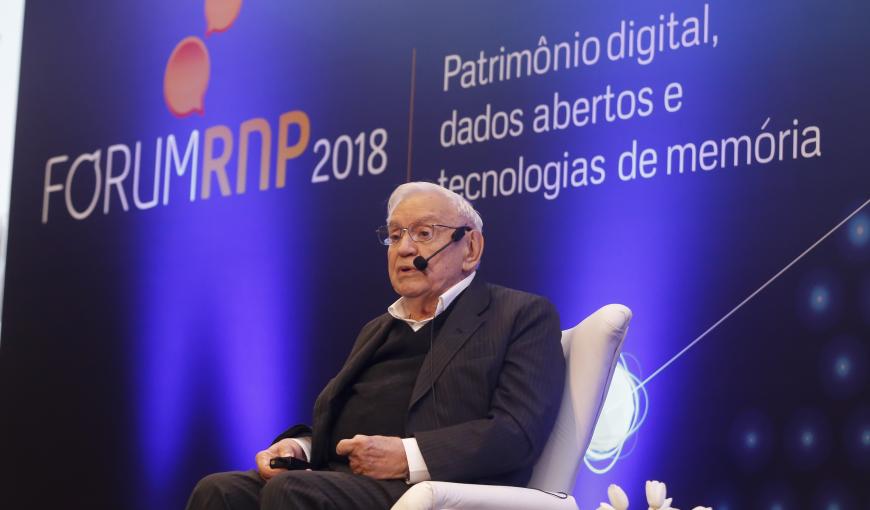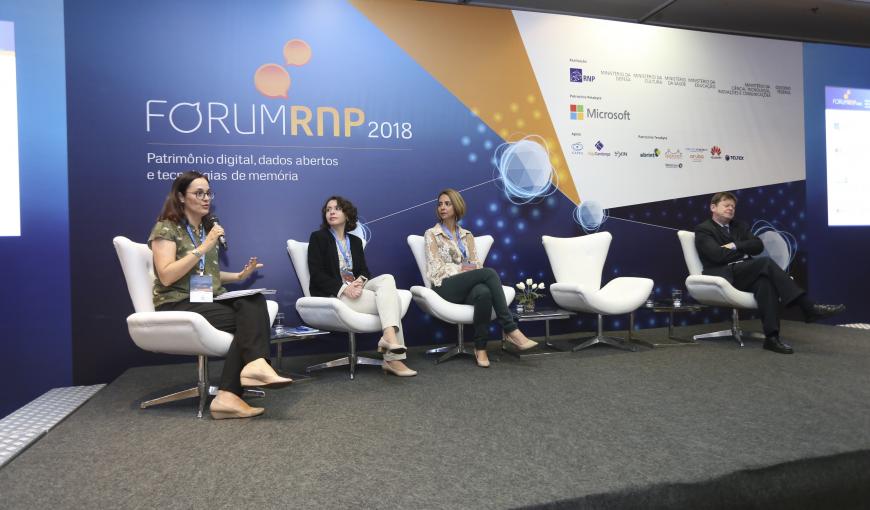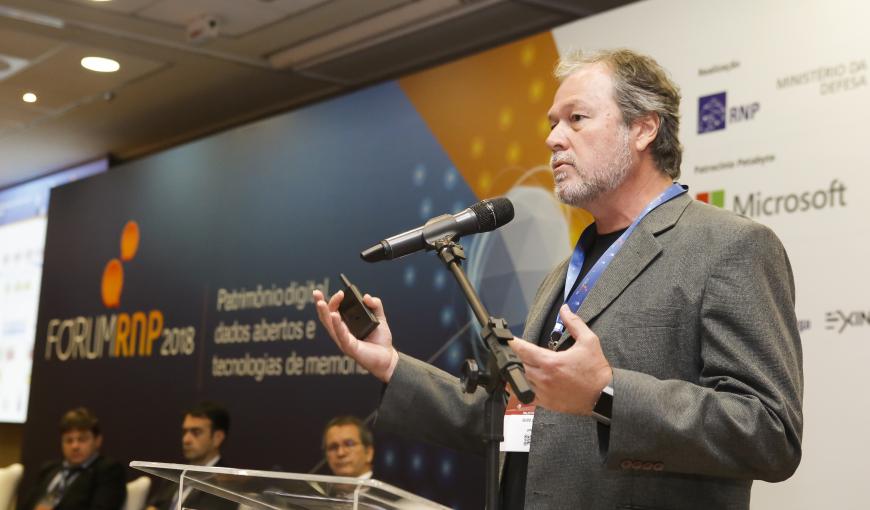RNP Forum 2018: focus of the debates included Digital Assets, Open Data, and Memory Technologies
On August 28 and 29, the Brazilian National Research and Educational Network (RNP) hosted the 7th edition of the RNP Forum 2018, which discussed issues on cybersecurity, governance of IT, in addition to debates focused on academic networks and changes in the Internet in Brazil. The audience of around 1,700 participants – 500 on-site and 1,200 remote – was able to watch the diverse opinions during the panels that made up the programme. The discussions were centered on the topics of “Digital Assets, Open Data, and Memory Technologies."
The highlight of the event was a lecture by the Brazilian aeronautical engineer Ozires Silva, who contributed with his perspectives on “doing it differently” and how to have a new perspective to boost innovation in Brazil, in view of his success story, which culminated in the creation of the Empresa Brasileira de Aeronáutica S.A. (Embraer). The speaker opened his presentation with a challenge: to be brave and bold in order to reach the desired results. “Companies who are bold and brave enough to do things they don’t know are advancing and have a head start,” said Ozires.
To the engineer, the key-word to conquer new spaces is confidence. “Many Brazilians aren’t able to fulfill they dreams because they lack this sense that Americans have in abundance, which is that it is everyone’s duty to have confidence that things can happen,” he stated.
He closed the presentation with a message to the RNP Forum audience: “Why do we develop this environment of lack of confidence? We need to believe in Brazilians. We need to value ourselves to the most and use that value to build different things. Let's not give up on Brazil."
The new legal framework on STI: academia-enterprise approximation
The debate on the impacts of the New STI Legal Framework for innovation environments brought together three different segments - government, enterprises, and universities – to presents several perspectives generated by the Decree 9.823 approved in February of this year.
The creation of the Legal Framework was to encourage innovation in the country. The Decree 9.283 regulates and reduces bureaucracy around research activities, bringing universities and enterprises closer together. Representing the Ministry of Science, Technology, Innovation, and Communication (MCTIC), Jorge Campagnolo presented the chronology of the laws that regulate innovation in Brazil. To him, none of them was as effective as the decree of the New Legal Framework. “The decree expands incentives to new strategic alliances and the development of cooperation projects that involve enterprises, ICTs, and private non-profit entities. The manager is empowered. They are responsible for deciding on the best alliance. That is a great step forward,” analyzed Campagnolo.
Idenilza Miranda, from the National Industry Confederation (CNI), showed how the industry reacted to the decree. She explained how the Enterprise Mobilization for Innovation (MEI) works, which hosts eight yearly meetings with CEOs, ministers and ruling bodies to discuss relevant issues on innovation. “Dissemination is crucial. As soon as the document was published, our first initiative was to publicize it and tell universities that they need to adopt it. We had major advances. The question now is how to implement it,” highlighted Idenilza.
The academic perspective was presented by Juliana Crepalde, from the Coordination of Technology Transfer and Innovation (CTIT), of the Federal University of Minas Gerais (UFMG). The lawyer gave some examples of strategic alliances that have already been formed between the University of Minas and private companies, and how the academia is putting the Legal Framework into practice in its daily activities. “The role of innovation doesn’t belong to the universities, but to the industry. The framework increases the synergy of innovation and technology initiatives and the business sector. It opens up new possibilities. In UFMG, we have already begun to create our innovation policy to speed up these processes,” concluded Juliana.
Challenges of digital diplomas
In April 2018, the Ministry of Education (MEC) published the ordinance 330 that regulated the issuing of digital diplomas in higher education institutions. The ordinance determines that digital certificates will become mandatory in two years. In view of this scenario, the RNP Forum brought together representatives from the academic and governmental bodies to discuss the challenges faced by the federal education system in order to comply with the regulation.
According to the director of Development of the Federal Higher Education Network of the Ministry of Education (MEC), Mauro Rabelo, the regulation of digital diplomas aims at minimizing fraud and the marketing of fake diplomas. “The diploma is some ageless. No matter how you store it, it needs to be accessible in 100 years,” declared Rabelo.
The legislation defines that a digital document is valid provided that signed adequately following the Brazilian Public Key Infrastructure - the PKI-Brazil. “It is necessary that we use informatics and virtual instruments that can give us agility and trust in that document,” declared the director of the National Institute for Information Technology (ITI), Rafael Abritta. The speaker presented the RNP Forum audience with examples of the impact generated by digital certification e raised some questions regarding costs. “With the scarcity of resources, the use of digital certificates in our country becomes necessary; we will have to increasingly virtualize things.”
In the reality of universities, the challenge pointed out was the need to adopt a standard to issue these digital diplomas. According to Jean Martina, a researcher at the Federal University of Santa Catarina (UFSC), the process is time-consuming, not standardized and unknown to the general population. Nowadays, the Computing Security Laboratory of UFSC is studying the creation of a standard for diplomas with the PKI-Brazil signature. “Our diplomas are difficult to be validated by humans and impossible to be validated by computers,” declared Martina,
Check out the entire coverage of the event – news, photos, videos, presentations – at https://forum.rnp.br.


